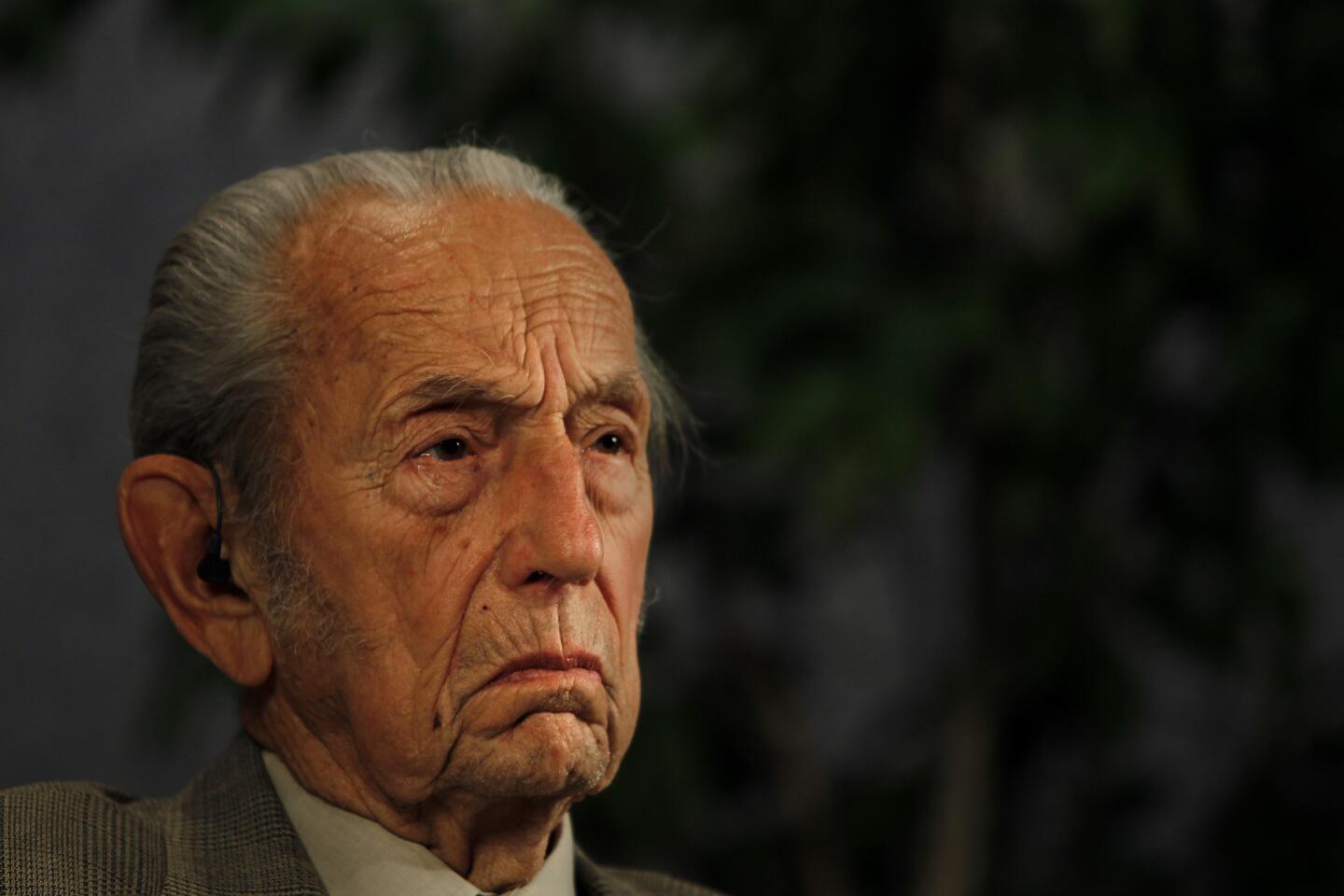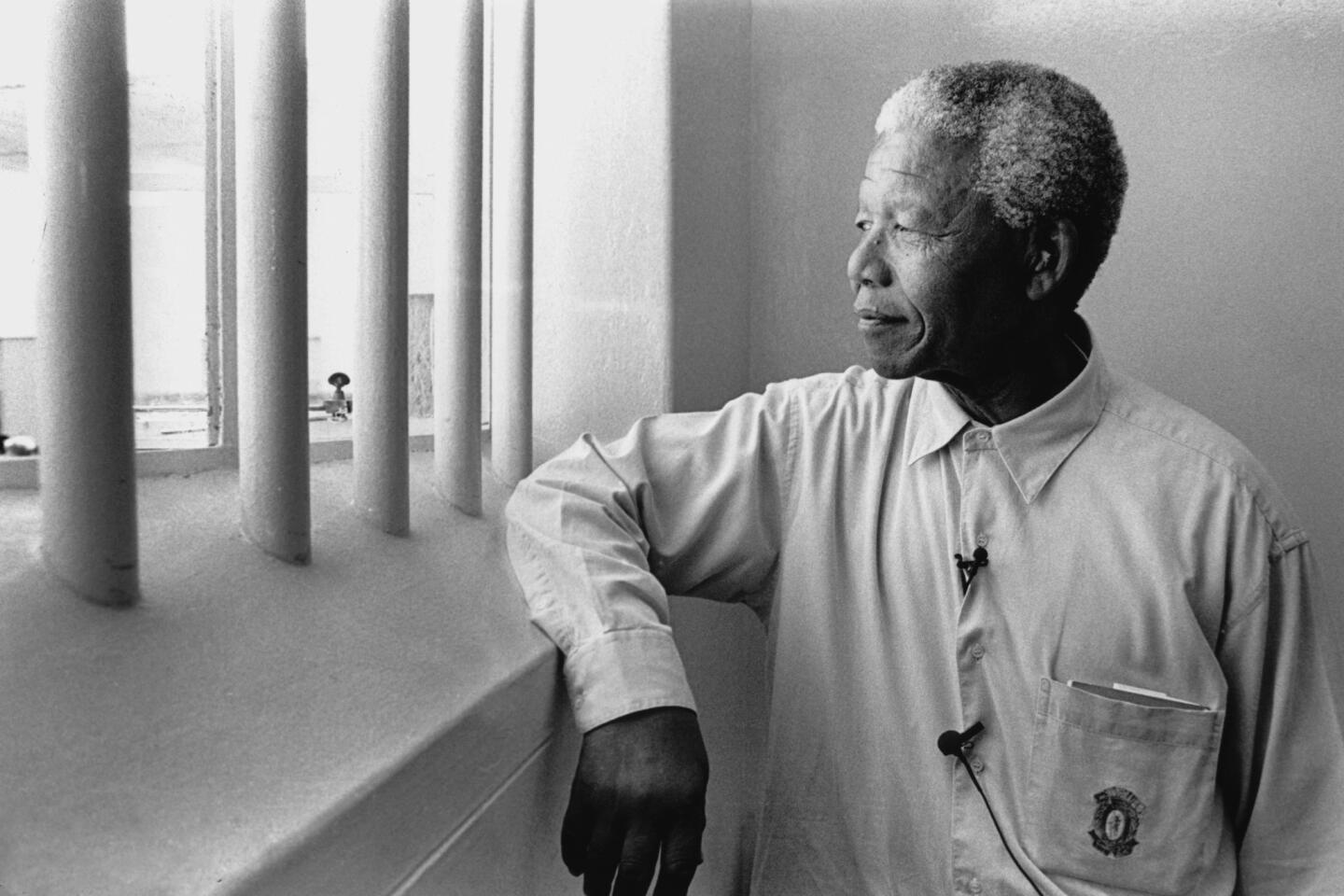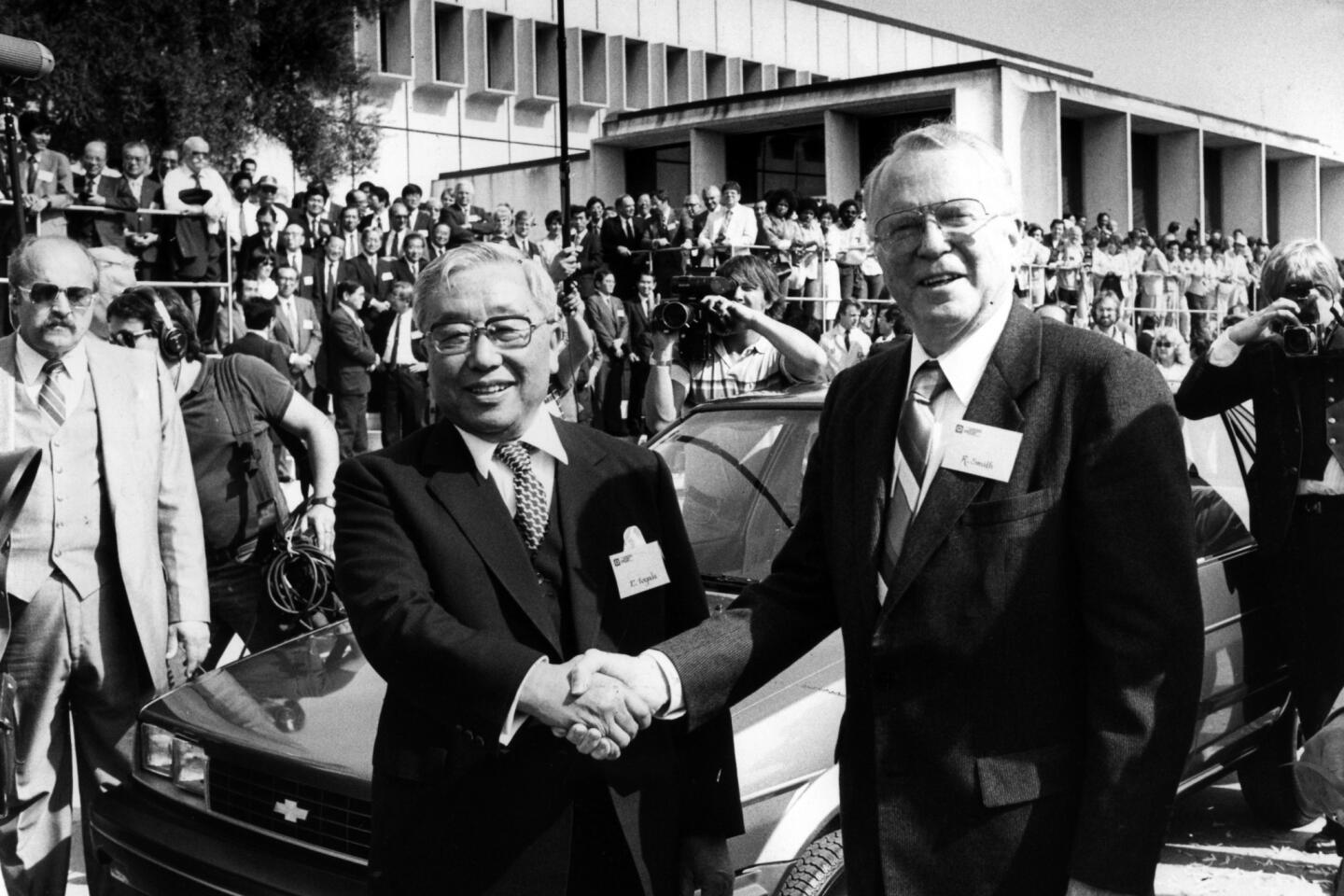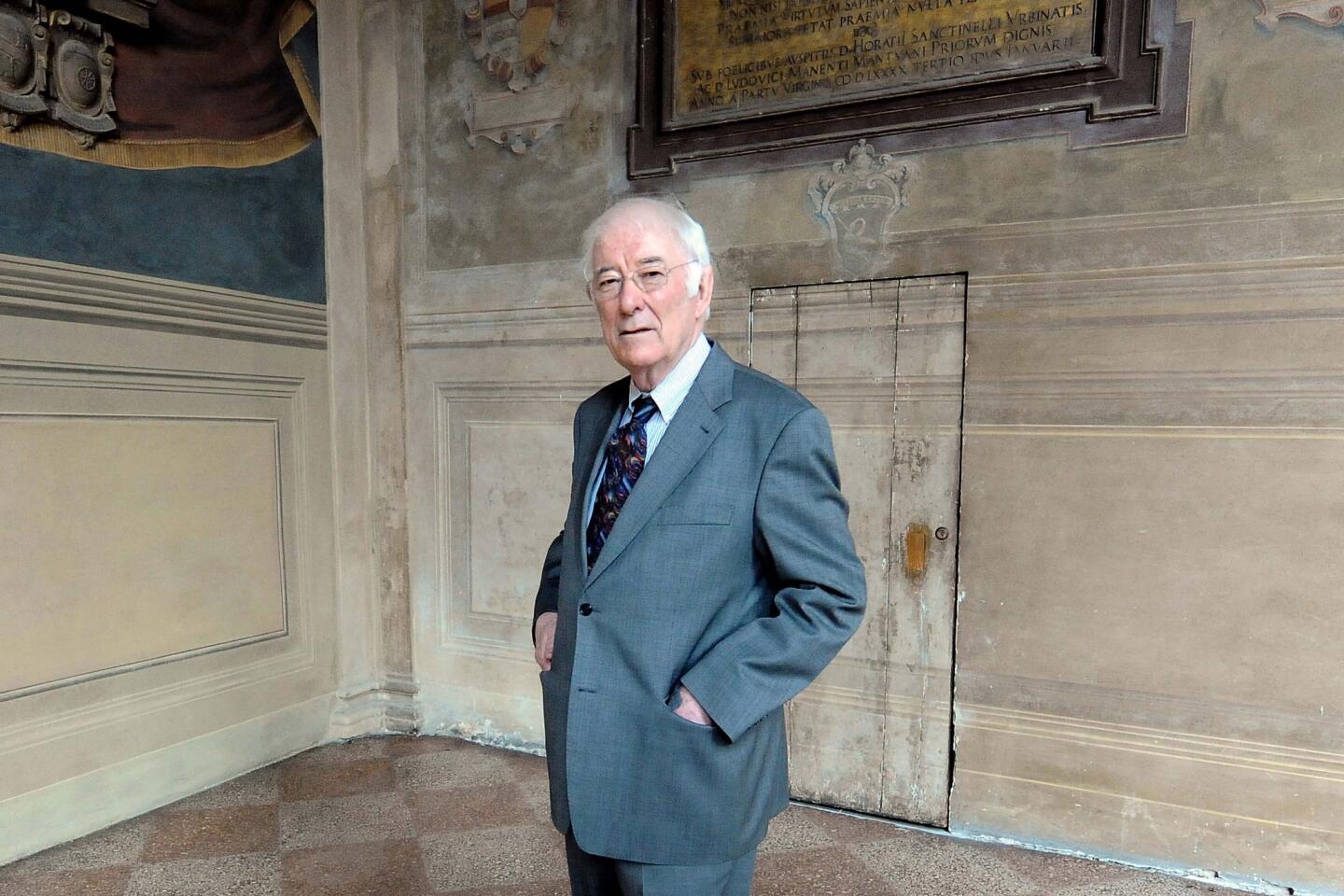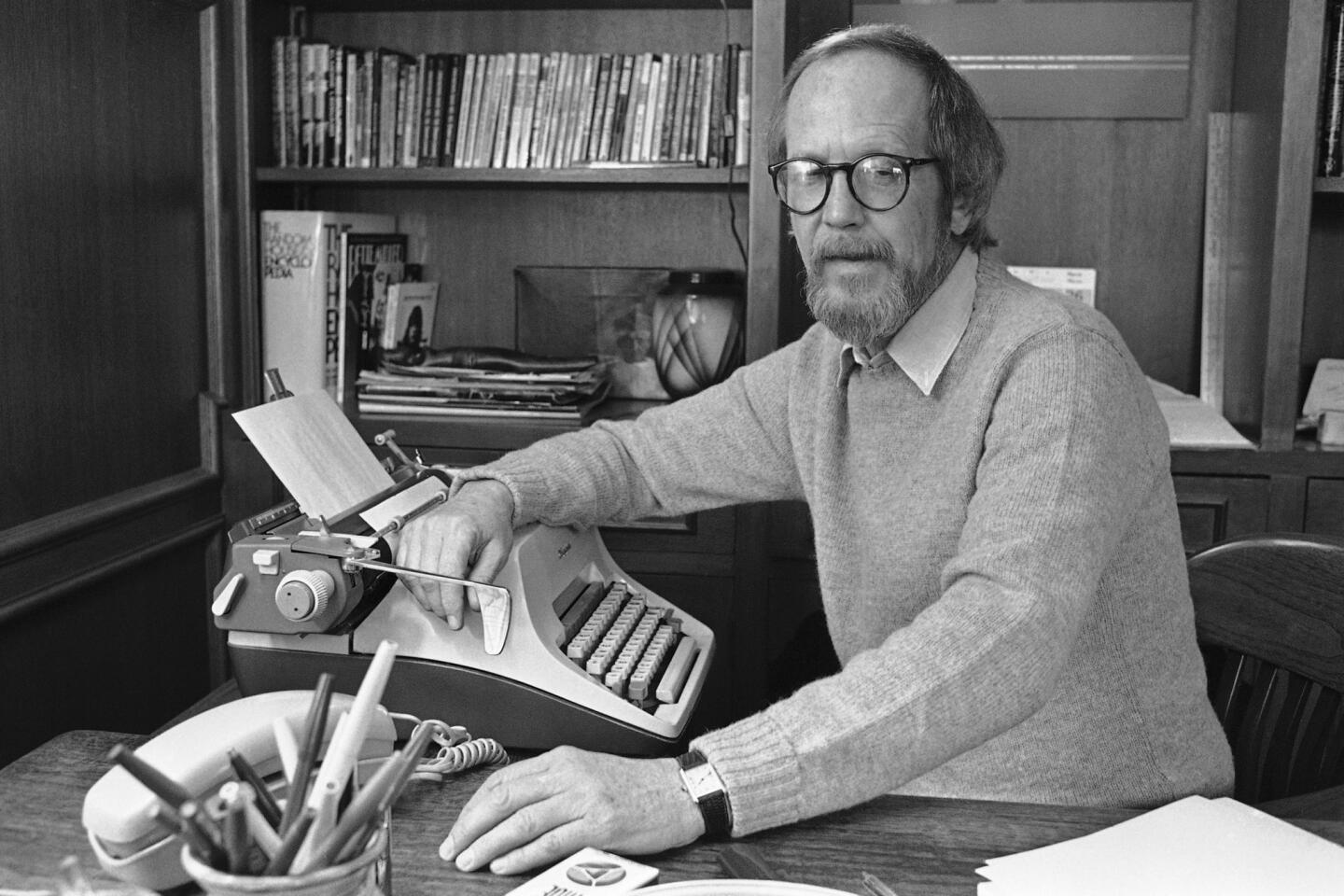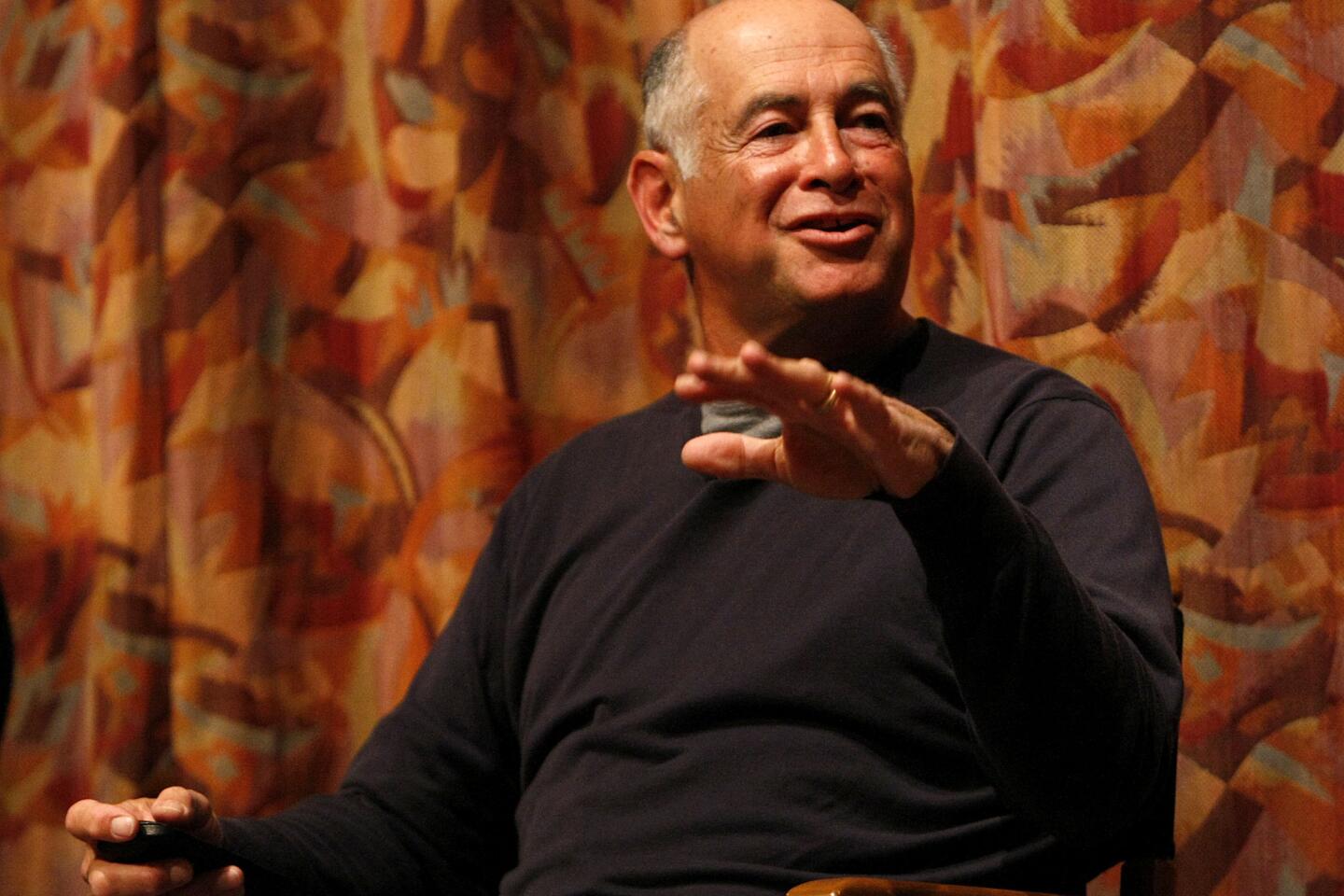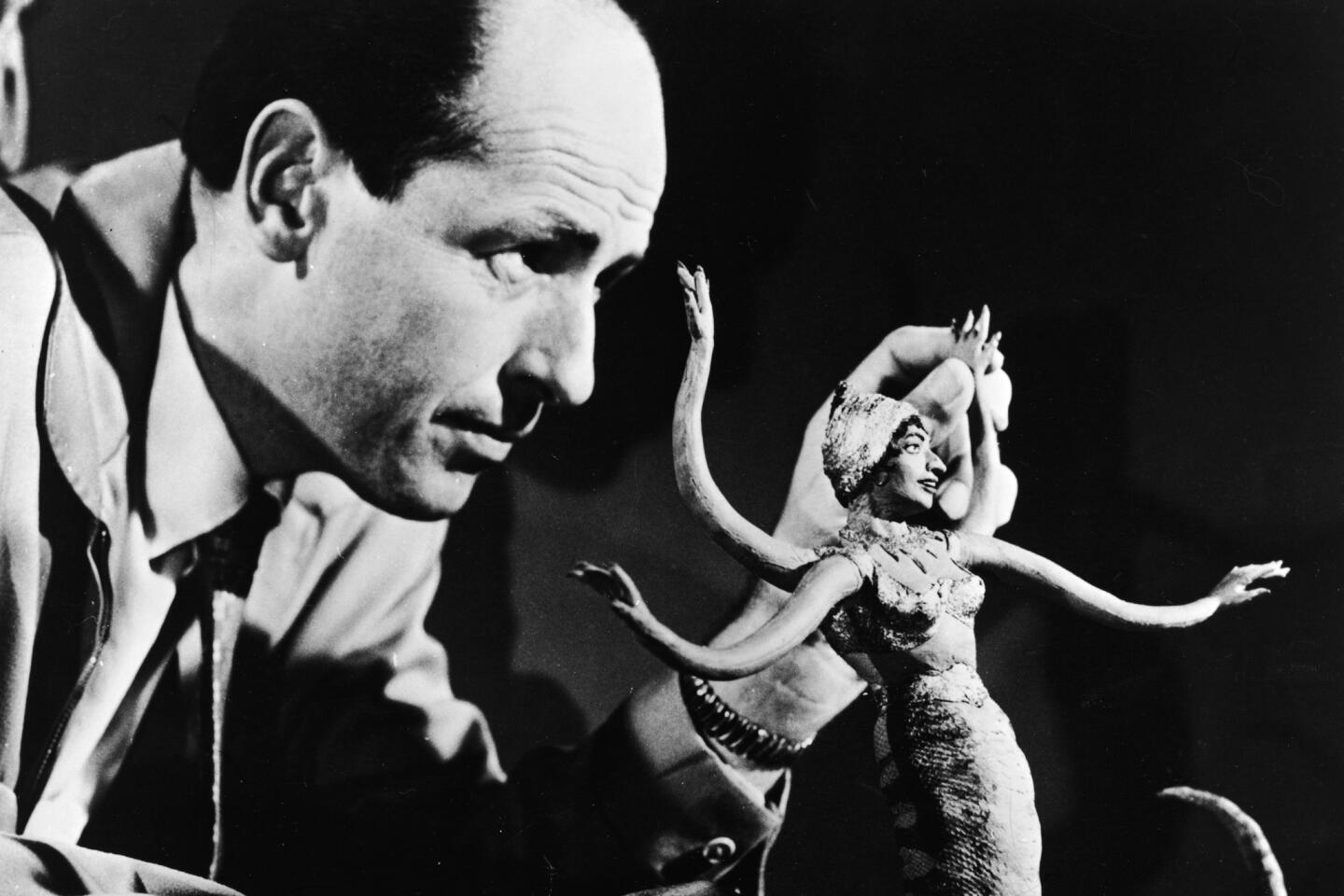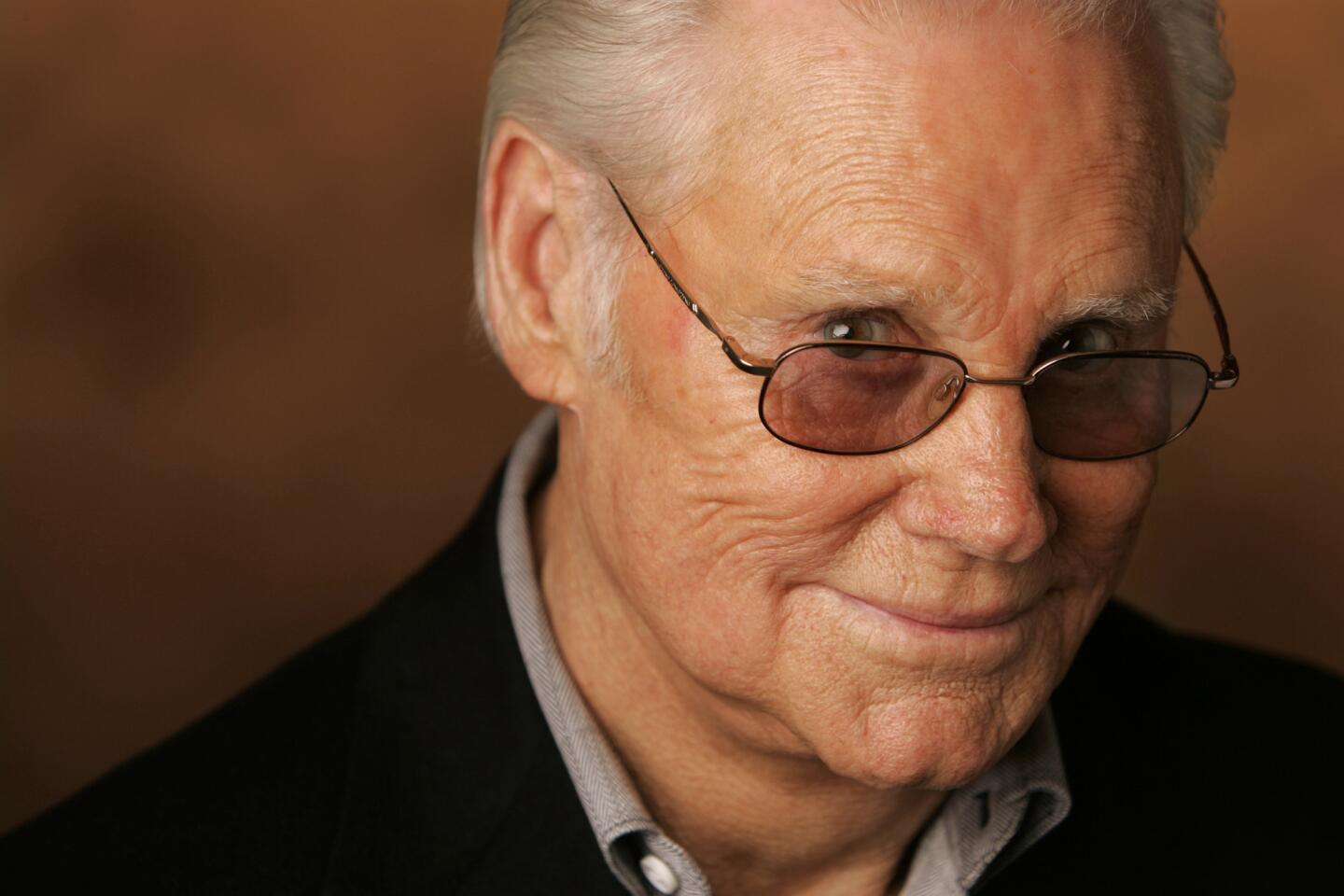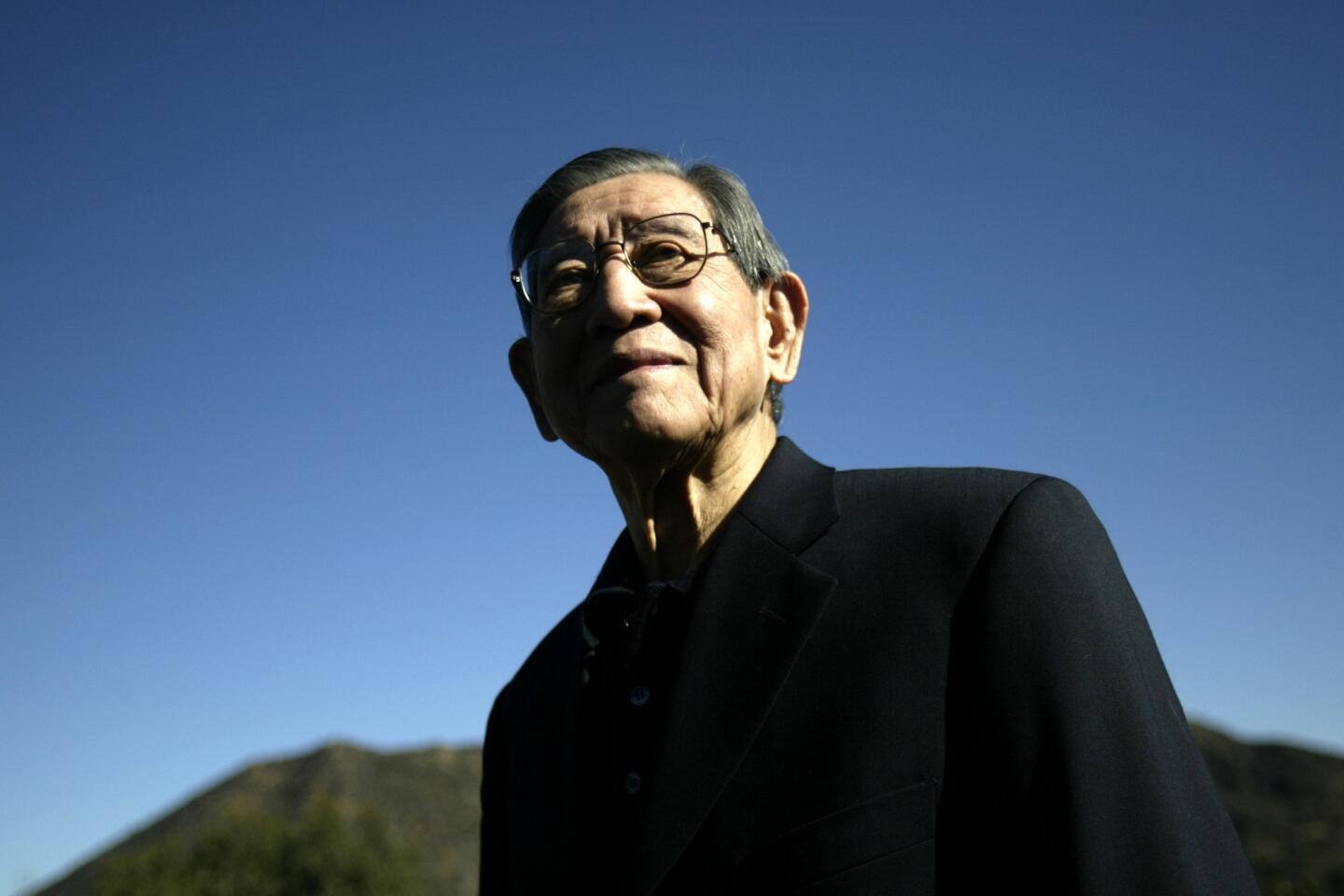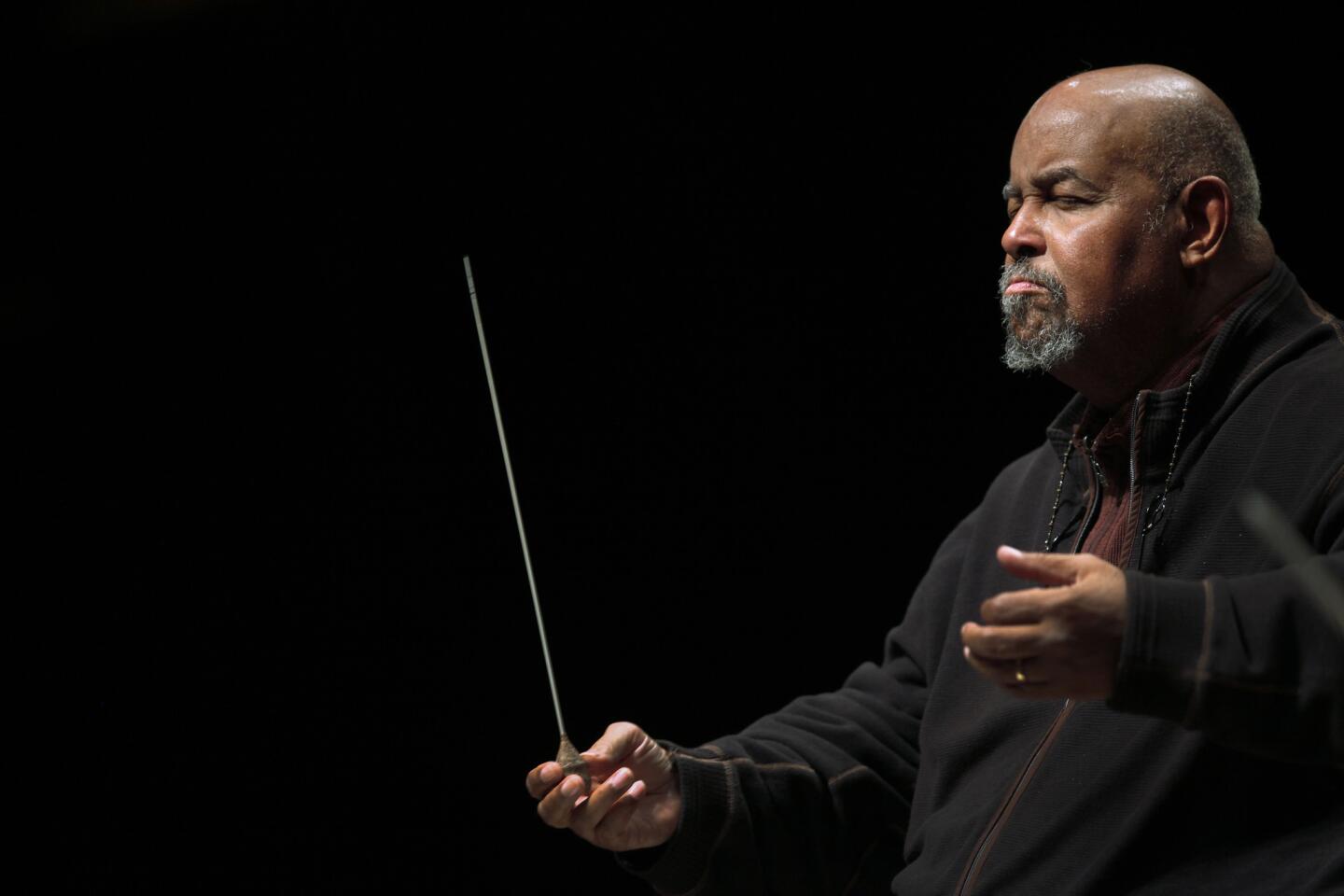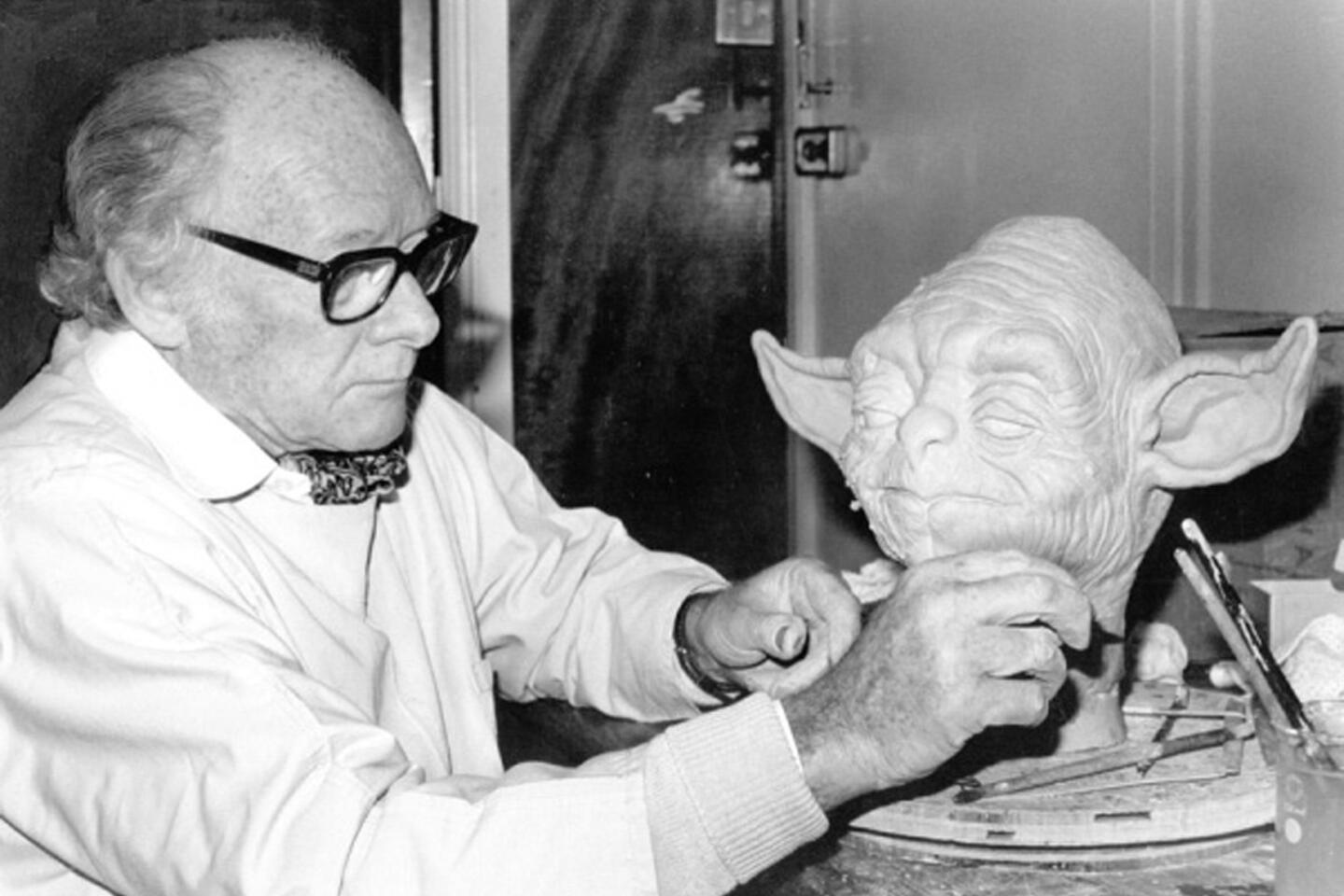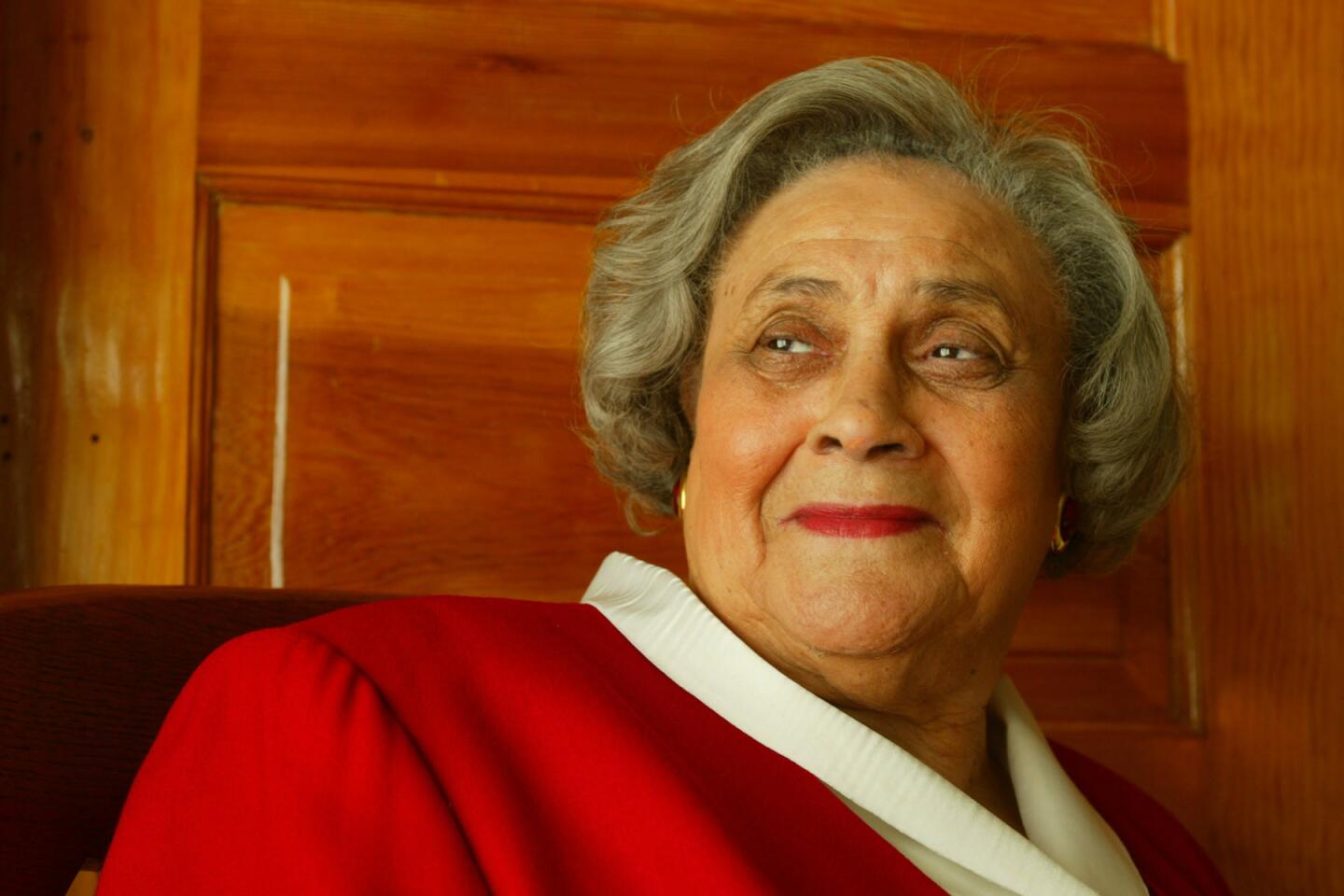James DePreist dies at 76; artistic advisor to Pasadena Symphony
James DePreist, artistic advisor to the Pasadena Symphony and Pops and one of the few African American conductors to lead major orchestras in the United States and abroad, died Friday at his home in Scottsdale, Ariz. He was 76.
The cause was complications of a heart attack he had last spring, said his manager, Jason Bagdade.
DePreist overcame polio in his 20s to pursue a conducting career that took him to stages from Sweden to Japan over four decades. His longest and most distinguished tenure was with the Oregon Symphony, where he was music director from 1980 to 2003, a period when that orchestra gained national and international renown.
In 2010 he assumed the top musical post at the Pasadena Symphony after the unamicable departure of its longtime music director, Jorge Mester.
“We brought him in after our 25-years-long music director left. There was a bit of uneasiness and unsettled feelings among the orchestra,” Paul Jan Zdunek, chief executive of the Pasadena Symphony Assn., said Friday.
“James came in and was just a Zen master. He had this aura about him. He didn’t have to say anything. It was the way he looked at you and held himself,” Zdunek said. “And his musicianship was beyond reproach.”
DePreist was also permanent conductor of the Tokyo Metropolitan Symphony Orchestra and director emeritus of conducting and orchestral studies at the Juilliard School in New York.
He was a nephew of Marian Anderson, the celebrated contralto whose 1939 concert on the steps of the Lincoln Memorial was a civil rights milestone. DePreist was awarded the National Medal of Arts, the nation’s highest honor for artistic achievement, by President George W. Bush in 2005.
He had a commanding presence, even though in his last years — after a kidney transplant in 2001— he conducted from a wheelchair.
He was born in Philadelphia on Nov. 21, 1936. His Aunt Marian was an influence early in his life: After his father died when DePreist was 6, she helped support him and his mother and encouraged his interest in music.
He entered the University of Pennsylvania’s Wharton School as a pre-law student in 1954 and earned a bachelor’s degree in 1958. Realizing he did not want to be a lawyer, he switched gears, earning a master’s degree in the arts from the University of Pennsylvania in 1961 and studying with noted composer Vincent Persichetti at the Philadelphia Conservatory. In college he formed a jazz group called the Jimmy DePreist Quintet that performed on “The Tonight Show” with Steve Allen in 1956.
In 1962 the State Department invited DePreist to teach and perform jazz on a cultural exchange tour of Asia. In Thailand he was given the opportunity to conduct a Bangkok orchestra, which was “that kind of revelatory experience that we read about and hope for.” He knew he wanted to be a conductor.
But during that tour, he was stricken with polio, which left both his legs paralyzed. He returned to the U.S. for six months of intensive therapy and regained the ability to walk with crutches. In 1964 he won first prize in the Dmitri Mitropoulos International Conducting Competition, which brought him wide notice and a season at the New York Philharmonic as an assistant to conductor Leonard Bernstein.
Finding it difficult to obtain a serious classical conducting position in the U.S., he went abroad and made his European debut in 1969 leading the Rotterdam Philharmonic. He was associate conductor under Antal Dorati of the National Symphony in Washington, D.C., in 1971 when he conducted at Constitution Hall, the venue that had turned away his aunt in 1939 because she was black. After one rehearsal, he called Anderson and said, “You know, it’s incredible to me that you couldn’t do what I just did,” he told the Associated Press in 2002.
He became the first African American conductor of the Houston Symphony in 1976. That year he also began a seven-year stint as music director of the Quebec Symphony.
In 1980 he was hired as music director of the Oregon Symphony, and over the next several years amplified its budget, raised players’ salaries and stretched its repertoire to include more American music. He “built it into a virtuoso band more than able to hold its own in any international company,” Gramophone magazine wrote in 2001.
DePreist made more than 50 recordings, including a critically acclaimed Shostakovich series with the Helsinki Philharmonic.
He also published two volumes of poetry, “This Precipice Garden” and “The Distant Siren.” Maya Angelou praised his work for having “the tautness of a perfectly pitched viola and much of its resonance.”
DePreist stood with leg braces to conduct until one day in Stockholm when he was conducting with violinist Itzhak Perlman, also a polio survivor.
“He asked me, ‘Why are you standing up?’ I had no good reason, and from that point on, I sat to conduct, and it was tremendously freeing.…”
DePreist is survived by his wife, Ginette, two daughters and two grandchildren.
More to Read
Start your day right
Sign up for Essential California for the L.A. Times biggest news, features and recommendations in your inbox six days a week.
You may occasionally receive promotional content from the Los Angeles Times.

